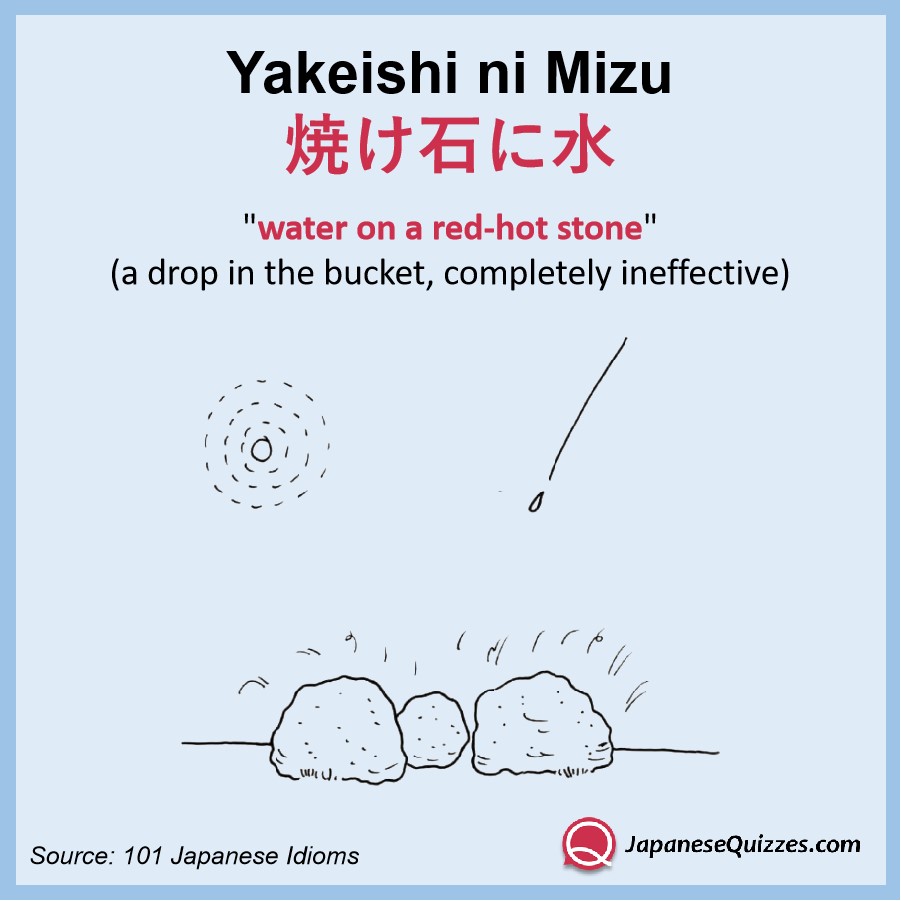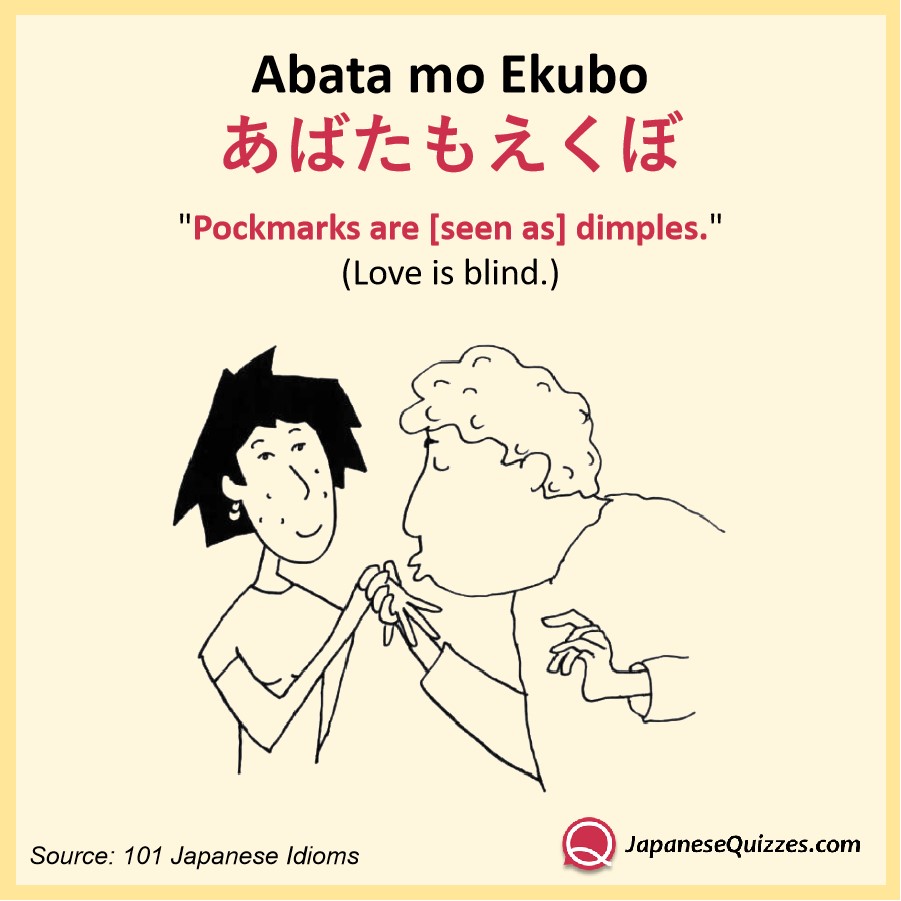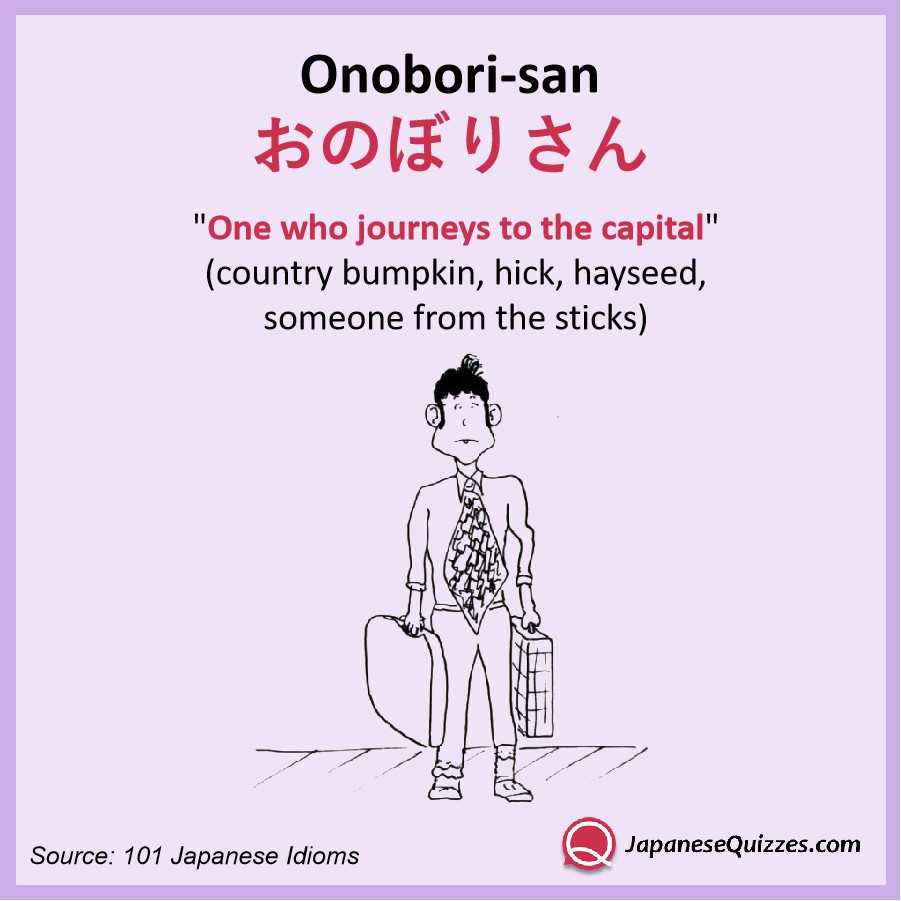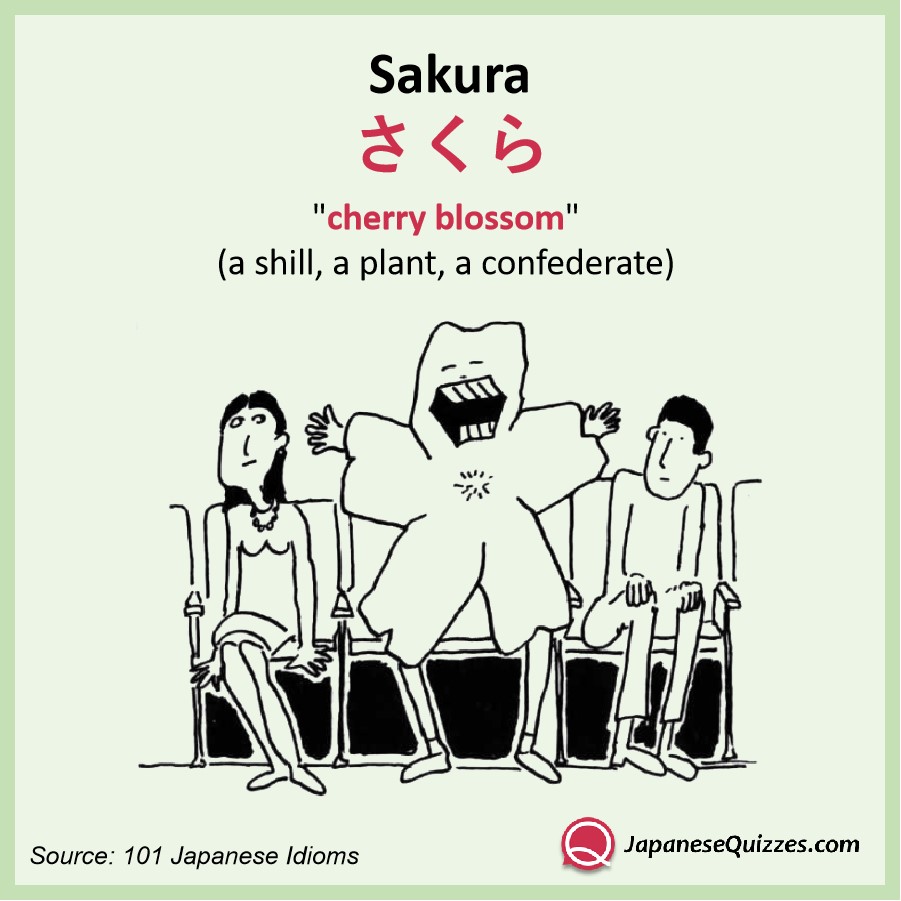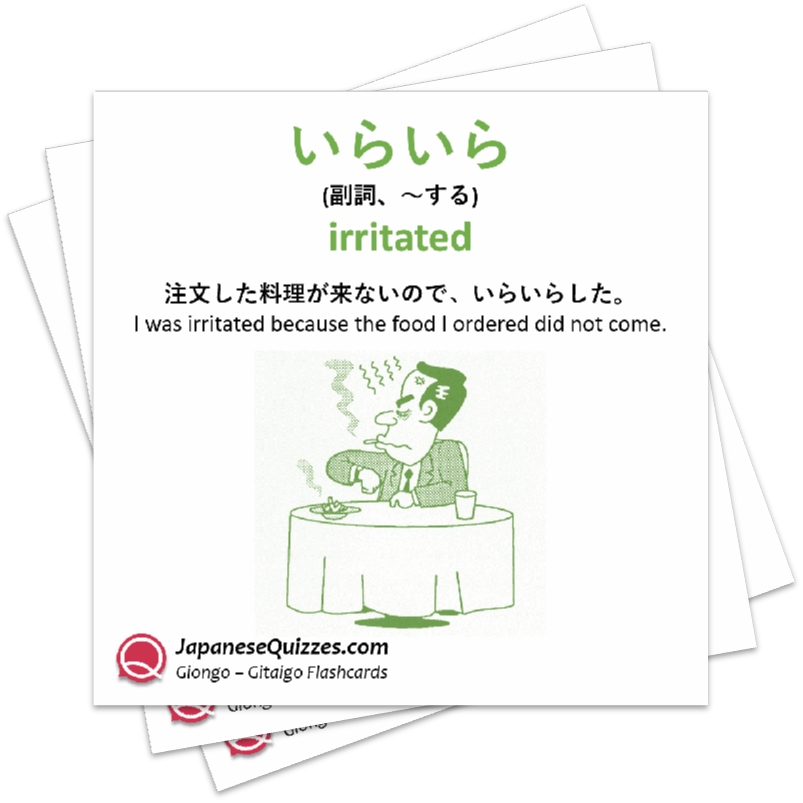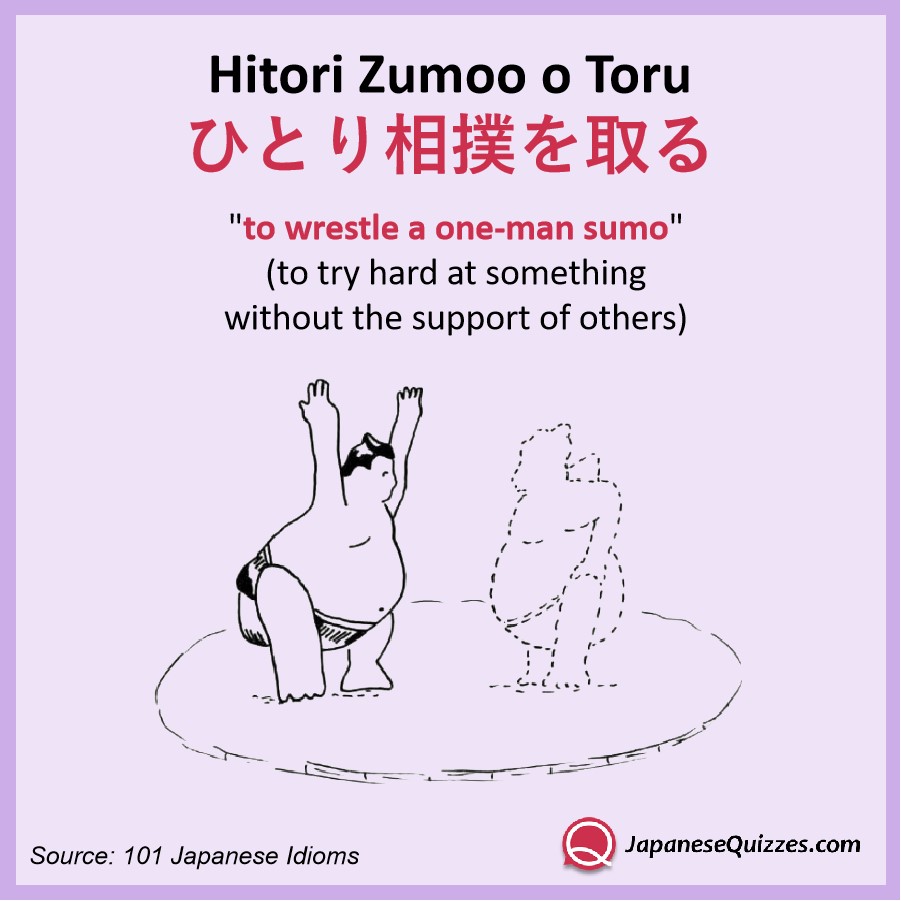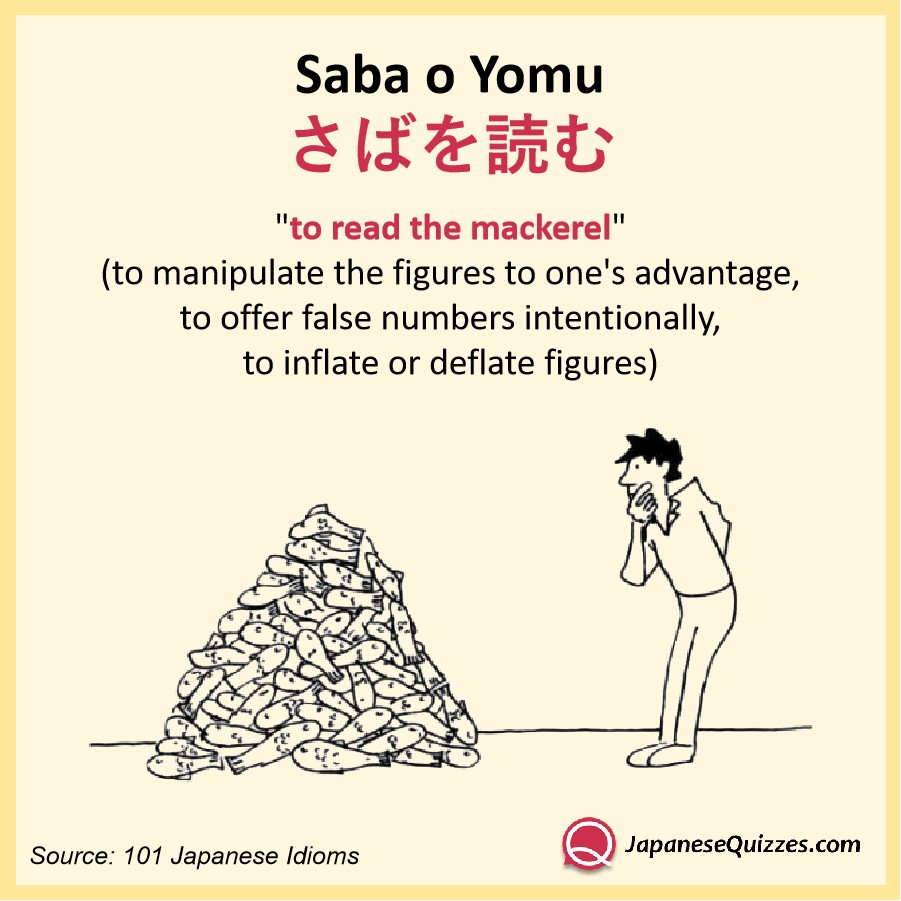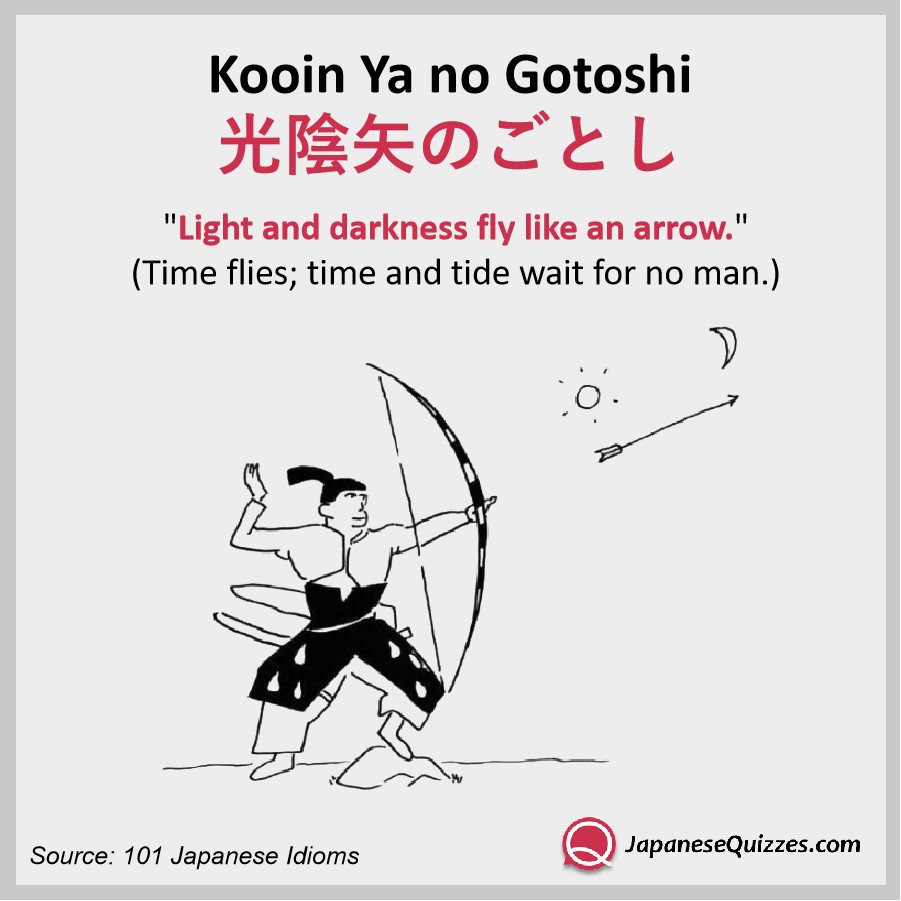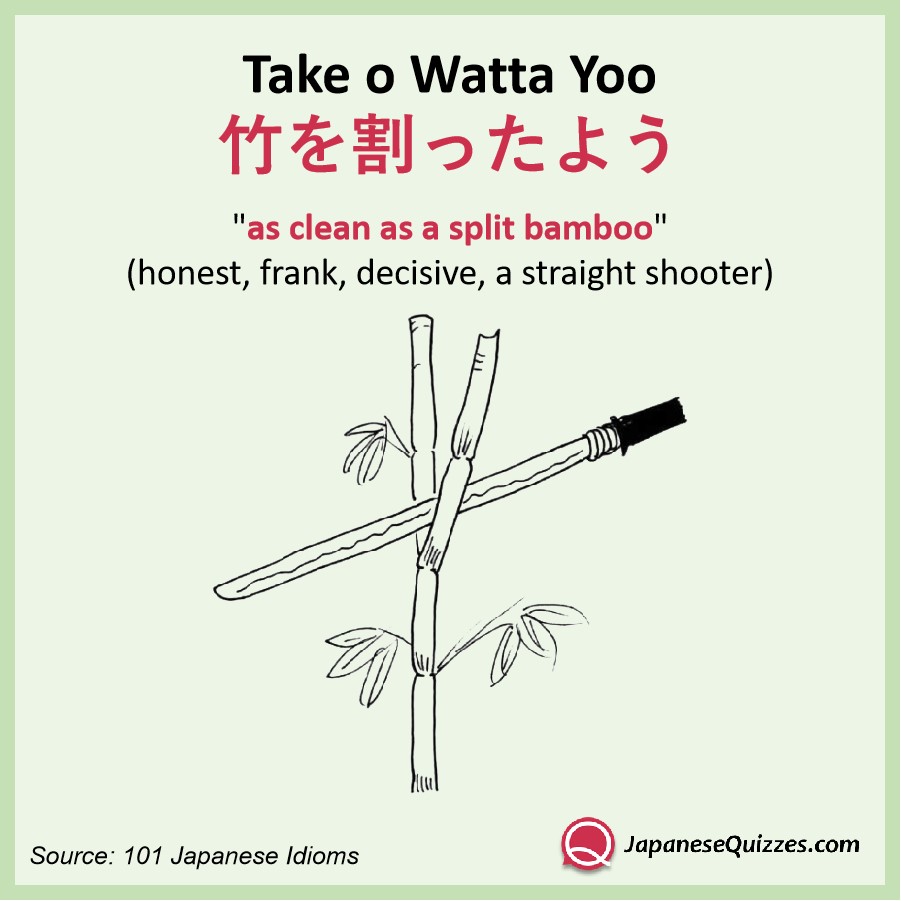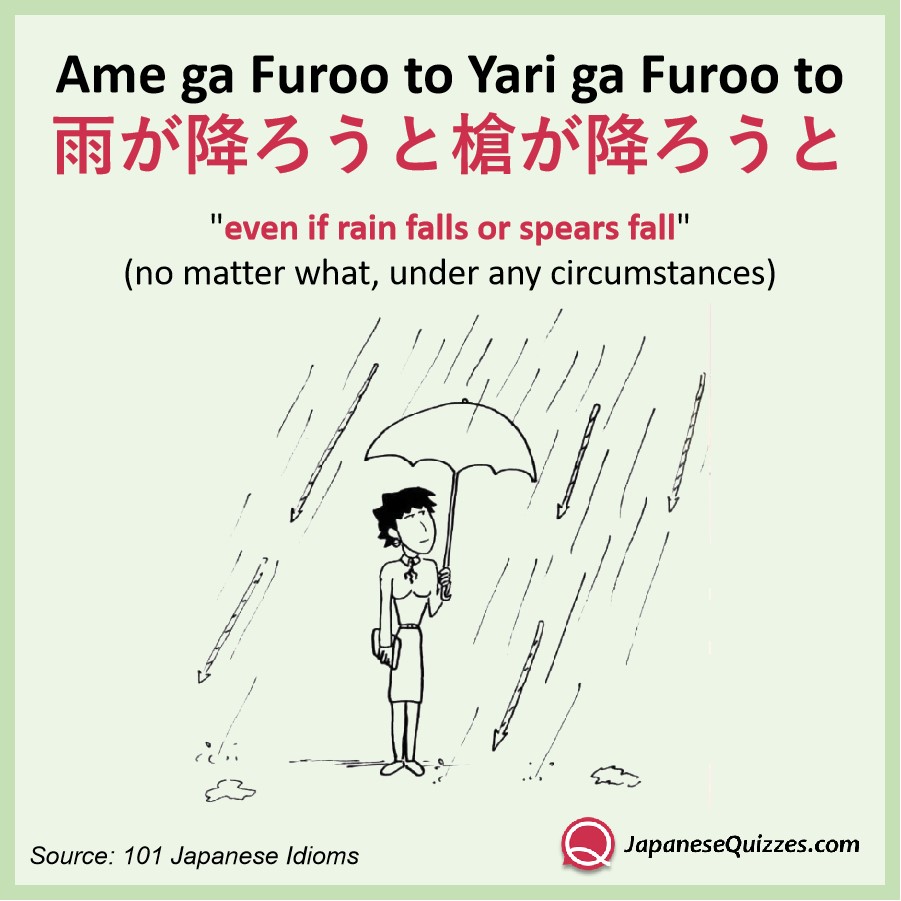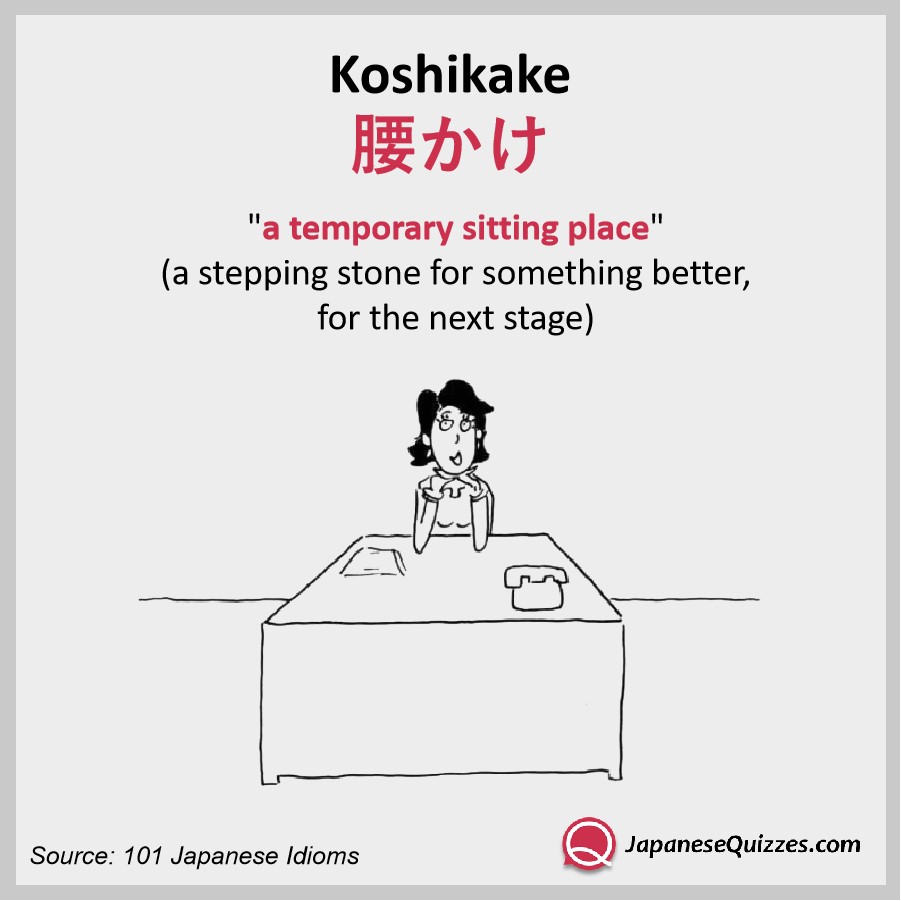
穴があったら入りたい
“If there were a hole, I’d want to crawl into it.”
(“I’m so ashamed”; “I could’ve died of embarrassment.”)

Sometimes your embarrassment is so acute you want to disappear completely from the scene. Unfortunately, in most cases you’re stuck with braving it out. Yet were there a hole, you’d crawl into it.
Sample text:
(Style: written/informal)
Paatii no sekijoo de kyuuni aisatsu o tanomare, taihen komatta koto ga aru. Ki ga dooten shiteita tame ka, jooshi no namae o machigaete itteshimai, hontooni ana ga attara hairitai kimochi datta. Yahari aisatsu o tanomu nara maemotte onegai shite moraereba arigatai mono da.
パーティーの席上で急にあいさつをたのまれ、大変困ったことがある。気が動転していたためか、上司の名前をまちがえて言ってしまい、本当に穴があったら入りたい気持ちだった。やはり、あいさつをたのむなら前もってお願いしてもらえればありがたいものだ。
I was once in big trouble when asked without warning to give a speech at a party. I must have been upset; I used the wrong name in reference to my boss. I want to crawl into a hole! It is preferable to ask beforehand if you want someone to give a speech.
Japanese Idioms

すし詰め
“packed like sushi”
(very crowed, jam-packed)
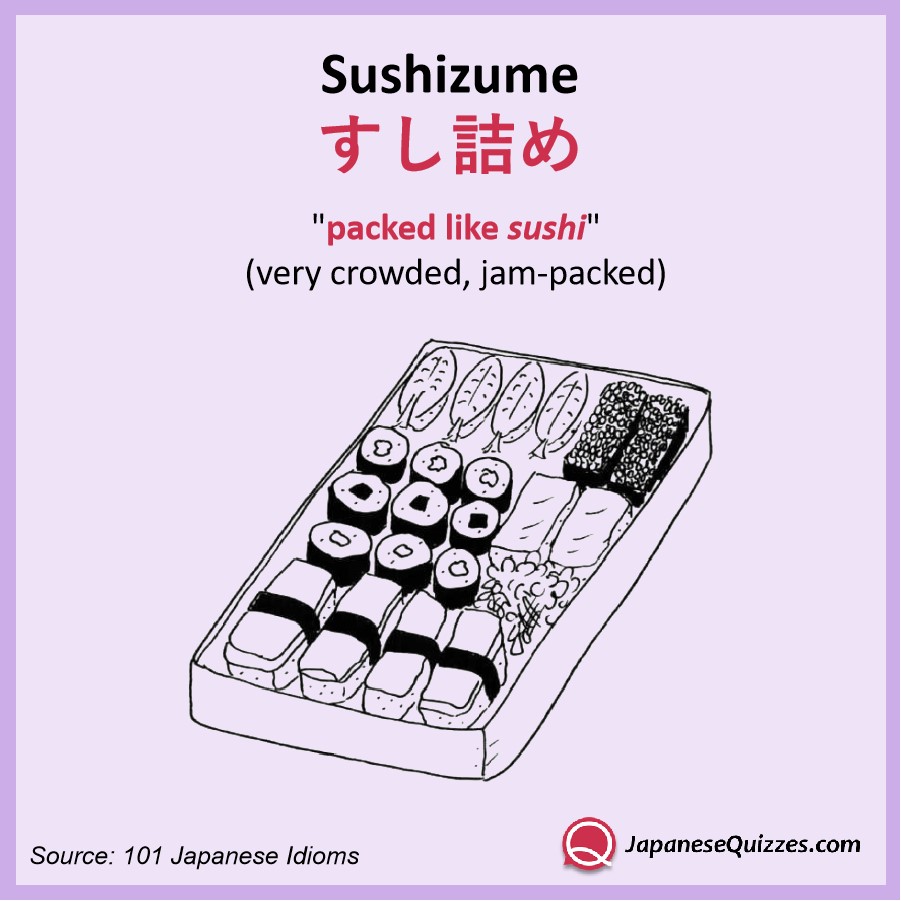
This expression is similar in meaning to “packed like sardines”. Sushi, the combination of raw fish with vinegared rice, is popular in Japan and increasingly so in the United States and Europe. Take-out sushi is often bought in little boxes called sushi-ori, in which the sushi pieces are packed tightly.
Sample text:
(Style: spoken/casual/male)
A: Atarshii shigoto, tanoshii kedo, tsuukin ga taihen de ne. Maiasa sushizume no densha de ichijikan na n da yo.
B: Taihen da ne.
A: 新しい仕事、楽しいけど、通勤が大変でね。毎朝すし詰めの電車で一時間なんだよ。
B: 大変だね。
A: My new job is a lot of fun, but commuting is terrible. Every morning I spend an hour in a jam-packed train!
B: That’s awful!
Japanese Idioms

三人寄れば文殊の知恵
“Three people together have the wisdom of a Buddha”
(two heads are better than one)

Monju is the Saint of Wisdom in the Buddist faith. Similar to “two heads are better than one”, the Japanese proverb suggests that even average people, when working in a group, can come up with a great idea.
Sample text:
(Style: spoken/casual/A=female, B=male)
A: Kaigishitsu de nanika hisohiso hanashiteru kedo, nani shiteru no?
B: Kondo no purojekuto no gen’an o netteru rashii yo.
A: Daijoobu kashira. Demo, maa “sannnin yoreba Monji no chie” tte yuu kara…
A: 会議室で何かひそひそ話してるけど、何してるの?
B: こんどのプロジェクトの原案を練ってるらしいよ。
A: 大丈夫かしら。でも、まあ『三人寄れば文殊の知恵』って言うから…。
A: They’re whispering among themselves in the meeting room; what are they up to?
B: They seem to be brainstorming on a new project.
A: Do you really think they can do it? Oh well, they say, “Two heads are better than one”.
Japanese Idioms

女三人寄れば姦しい
“Where three women gather, there is a noisy clamor”
(Women tend to talk a lot)
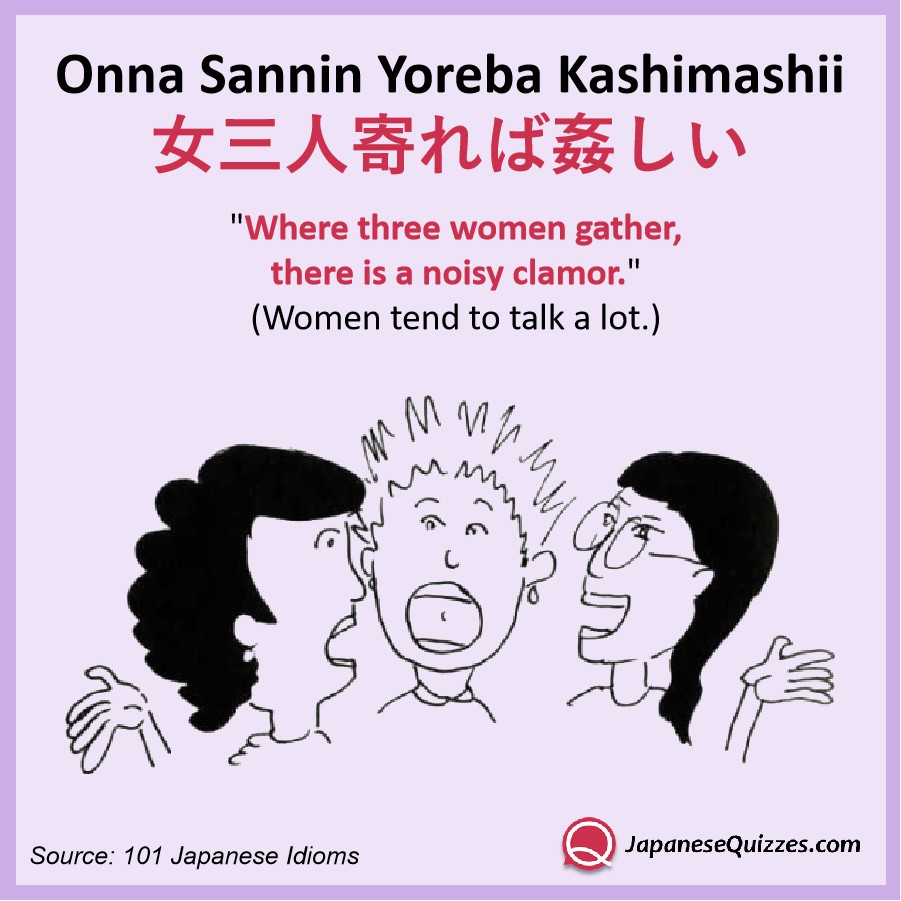
The Chinese character for kashimashii (“clamorous”) is made up three small characters for “woman”. In Japan it is understood that when two women get together, they tend to talk a lot. When three get together, it becomes really noisy.
Sample text:
(Style: spoken/casual/male)
A: Tonari no heya, taihenna sawagashisa da.
B: Sorya soo daroo. “Onna sannin yoreba kashimashii” tte yuu noni, gonin atsumatte shabetteru n da kara ne.
A: 隣の部屋、大変な騒がしさだ。
B: そりゃ、そうだろう。『女三人寄れば姦しい』って言うのに、五人集まってしゃべってるんだからね。
A: Such a racket they’re making next door!
B: What do you expect? If it’s true that when three women gather there is a noisy clamor, now you know what it sounds like when five of them get together.
Japanese Idioms

二の足を踏む
“to step twice in the same spot”
(to hesitate, to have second thoughts before taking an action)
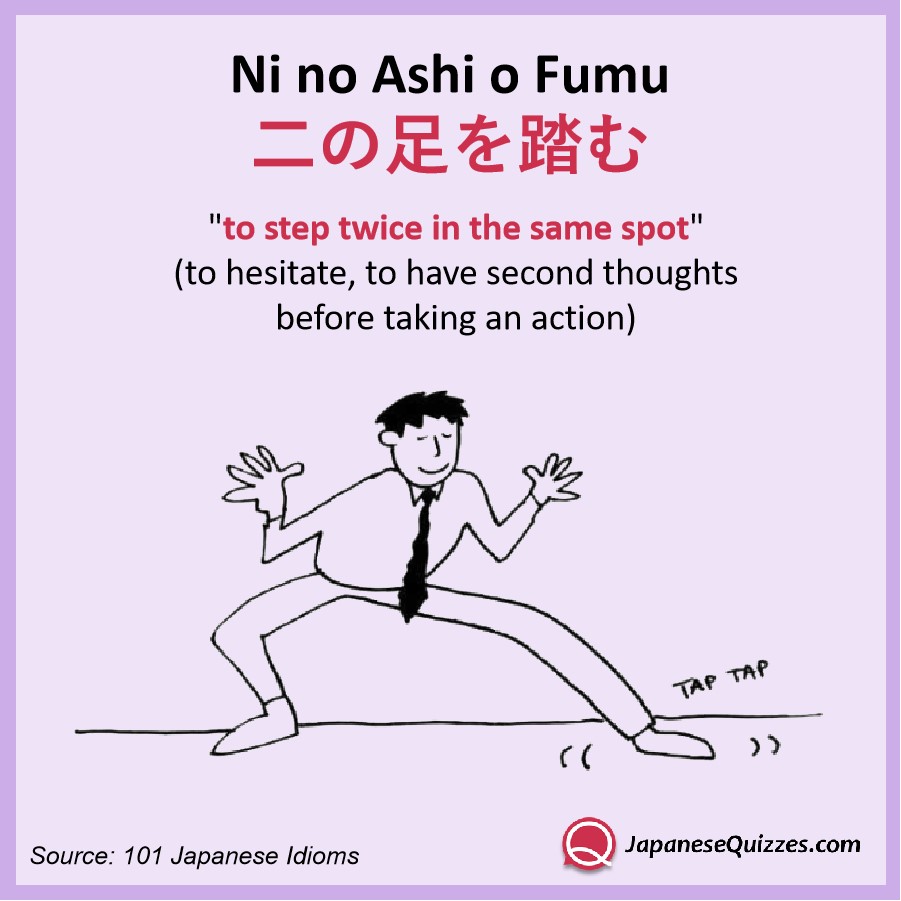
To step twice in the same place is not to advance forward. Thus the meaning of hesitation before continuing on a presumed or planned course of action.
Sample text:
(Style: written/informal)
Sasuga poro sukiiyaa no Hayashi-shi mo, sono yama no minami shamen o mite ni no ashi o funda. Totemo nami no sukiiyaa de wa suberesoomo nai kyuukooka ga, haruka kanata no tani made tsuzuiteiru no dearu.
さすがプロ . スキーヤーの林氏も、その山の南斜面を見て二の足を踏んだ。とても並のスキーヤーではすべれそうもない急降下が、はるかかなたの谷まで続いているのである。
Even Hayashi, a professional skier, hesitated when he faced the southern slope of the mountain. The nose-diving slope continued all the way down into the valley. The average skier wouldn’t even think about trying it.
Japanese Idioms

二枚舌を使う
“to use two tongues”
(to speak from both sides of the mouth, to speak with a forked tongue)

This expression refers to the practice of “speaking out of both sides of the mouth” – shading the meaning of one’s words to appeal to a particular person or group, while purposely giving a different impression to others. In Japan, as elsewhere, this practice (though common) is considered duplicitous and hypocritical.
Sample text:
(Style: spoken/casual/A=female, B=male)
A: Iyaa, chigau naa. Kono aida no kaigi de wa sonna koto wa ittenakatta naa.
B: Soo kashira. Kyoo no ohanashi o sono mama tsutaeta dake da kedo.
A: Saikin, Mori-san nimaijita o tsukau yooni natte kita ne. Hanashi ga dondon kawaru n da kara tamannai yo.
A: いやあ、ちがうなあ。この間の会議ではそんなことは言ってなかったな。
B: そうかしら。今日のお話をそのまま伝えただけだけど。
A: 最近、森さん二枚舌を使うようになってきたね。話がどんどん変わるんだからたまんないよ。
A: No, that’s not it. He didn’t say that in the meeting the other day.
B: Really? I’m just reporting to you what he said to me today.
A: Mori has recently gotten into this habit of speaking from both sides of the mouth. His story changes from minute; I can’t stand it!
Japanese Idioms




